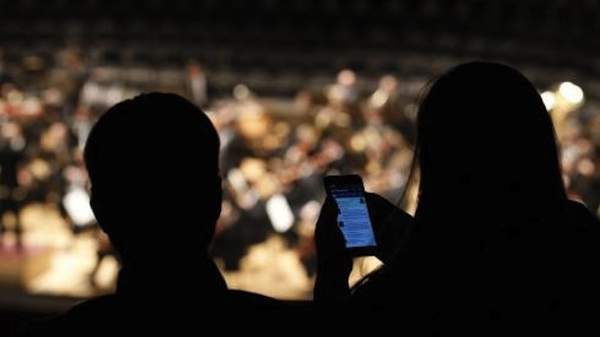Overview
The last bastion of the phone-free two hours, the theatre, might be about to crumble. Melbourne's Malthouse Theatre this week announced that they'll be trialling special seating for social media users, internationally dubbed 'tweet seats', at select shows. Carlton indie theatre La Mama is already all over it, having set aside four tweet seats per show for their upcoming work RAT, and they're even free.
Considering we've been live tweeting everything else — from films to talks, concerts and dinners — is the distinction around theatre an artificial one that's been destined to fall away? And is there any benefit to be gained from allowing us to whip out our phones mid-show?
The Malthouse announcement has met with some backlash, even on Twitter. Popular opinion is, if you're live tweeting a performance, you're living the kind of hollowed-out half-life that means you may as well stay home and plug into the Matrix. But this is a personal value judgement and not a reason, practically or conceptually, against allowing others to make Twitter a part of their theatre experience.
I struggle to express coherent thoughts for half an hour after a film or movie, let alone have any desire to do so while it unfolds and trade away the sense of immersion that comes with live performance. But that's just me, and that's just the shows I've seen. How about a small show built to feed off real-time responses? How about a big, bombastic opera that can't count on the nosebleed section being highly engaged?
The LA Times technology blog attributes the first instance of live theatre tweeting to a 2009 staging of Gilbert and Sullivan's HMS Pinafore in Kansas — and it was a more constructive affair than you might assume. Audience members in the 100 special seats of the final performance could access tweets from the show's artistic director about the production, scenery and story unfurling on stage while tweeting their own questions and comments. It was an aid to their enjoyment of the piece, not unlike an audio tour of an art exhibit. Or the special features on a DVD. Or a post-show Q&A, during the show.
It's since become common in the US and UK, mainly for ballets, operas and symphony concerts. With conditions tightly controlled — you don't want to distract the real-life cast and crew who need darkness to do their jobs properly — and the agreement of the individual creative team, theatre might continue to become a road more tweeted.
But then there's this argument from Alex Roe, artistic director of New York's Metropolitan Playhouse, perhaps the most focused takedown of how your tweeting might affect other people's enjoyment: "Part of the whole theatrical experience is the thought of being present in the company of the rest of the audience and the actors," Roe said to NPR. "To me, the thought of encouraging people to tweet during a performance is necessarily a violation of that agreement."
That might just be the tweet-seat deal-breaker.
